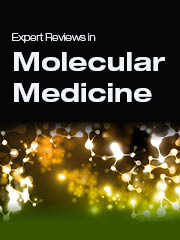Crossref Citations
This article has been cited by the following publications. This list is generated based on data provided by
Crossref.
Vaslin, A.
Puyal, J.
Borsello, T.
and
Clarke, P. G. H.
2007.
Excitotoxicity‐related endocytosis in cortical neurons.
Journal of Neurochemistry,
Vol. 102,
Issue. 3,
p.
789.
2008.
Stroke.
p.
635.
Vaslin, Anne
Puyal, Julien
and
Clarke, Peter G. H.
2009.
Excitotoxicity‐induced endocytosis confers drug targeting in cerebral ischemia.
Annals of Neurology,
Vol. 65,
Issue. 3,
p.
337.
Shan, Yuexin
Liu, Baosong
Li, Lijun
Chang, Ning
Li, Lei
Wang, Hanbin
Wang, Dianshi
Feng, Hua
Cheung, Carol
Liao, Mingxia
Cui, Tianyuan
Sugita, Shuzo
and
Wan, Qi
2009.
Regulation of PINK1 by NR2B‐containing NMDA receptors in ischemic neuronal injury.
Journal of Neurochemistry,
Vol. 111,
Issue. 5,
p.
1149.
Russo, Rossella
Rotiroti, Domenicantonio
Tassorelli, Cristina
Nucci, Carlo
Bagetta, Giacinto
Bucci, Massimo Gilberto
Corasaniti, Maria Tiziana
and
Morrone, Luigi Antonio
2009.
Vol. 85,
Issue. ,
p.
407.
Forder, J.P.
and
Tymianski, M.
2009.
Postsynaptic mechanisms of excitotoxicity: Involvement of postsynaptic density proteins, radicals, and oxidant molecules.
Neuroscience,
Vol. 158,
Issue. 1,
p.
293.
Jahani-Asl, Arezu
Germain, Marc
and
Slack, Ruth S.
2010.
Mitochondria: Joining forces to thwart cell death.
Biochimica et Biophysica Acta (BBA) - Molecular Basis of Disease,
Vol. 1802,
Issue. 1,
p.
162.
Wang, Yan
and
Qin, Zheng-hong
2010.
Molecular and cellular mechanisms of excitotoxic neuronal death.
Apoptosis,
Vol. 15,
Issue. 11,
p.
1382.
2010.
Poststroke nutrition - part 1.
Arbor Clinical Nutrition Updates,
Vol. 320,
Issue. ,
p.
1.
Carozzi, Valentina A.
Chiorazzi, Alessia
Canta, Annalisa
Lapidus, Rena G.
Slusher, Barbara S.
Wozniak, Krystyna M.
and
Cavaletti, Guido
2010.
Glutamate Carboxypeptidase Inhibition Reduces the Severity of Chemotherapy-Induced Peripheral Neurotoxicity in Rat.
Neurotoxicity Research,
Vol. 17,
Issue. 4,
p.
380.
Mahajan, S.S.
Thai, K.H.
Chen, K.
and
Ziff, E.
2011.
Exposure of neurons to excitotoxic levels of glutamate induces cleavage of the RNA editing enzyme, adenosine deaminase acting on RNA 2, and loss of GLUR2 editing.
Neuroscience,
Vol. 189,
Issue. ,
p.
305.
Sarwal, Aarti
Hussain, Muhammad Shazam
and
Shuaib, Ashfaq
2012.
Translational Stroke Research.
p.
79.
El Ghazi, Faiza
Desfeux, Arnaud
Brasse-Lagnel, Carole
Roux, Christian
Lesueur, Celine
Mazur, Danielle
Remy-Jouet, Isabelle
Richard, Vincent
Jégou, Sylvie
Laudenbach, Vincent
Marret, Stephane
Bekri, Soumeya
Prevot, Vincent
and
Gonzalez, Bruno J.
2012.
NO-dependent protective effect of VEGF against excitotoxicity on layer VI of the developing cerebral cortex.
Neurobiology of Disease,
Vol. 45,
Issue. 3,
p.
871.
Barros-Miñones, Lucía
Martín-de-Saavedra, Dolores
Perez-Alvarez, Sergio
Orejana, Lourdes
Suquía, Verónica
Goñi-Allo, Beatriz
Hervias, Isabel
López, Manuela G.
Jordan, Joaquin
Aguirre, Norberto
and
Puerta, Elena
2013.
Inhibition of calpain-regulated p35/cdk5 plays a central role in sildenafil-induced protection against chemical hypoxia produced by malonate.
Biochimica et Biophysica Acta (BBA) - Molecular Basis of Disease,
Vol. 1832,
Issue. 6,
p.
705.
Kaja, Simon
Sumien, Nathalie
Borden, Priscilla K.
Khullar, Nitasha
Iqbal, Maaz
Collins, Julie L.
Forster, Michael J.
and
Koulen, Peter
2013.
Homer-1a immediate early gene expression correlates with better cognitive performance in aging.
AGE,
Vol. 35,
Issue. 5,
p.
1799.
Vicente-Rodríguez, Marta
Gramage, Esther
Herradón, Gonzalo
and
Pérez-García, Carmen
2013.
Phosphoproteomic analysis of the striatum from pleiotrophin knockout and midkine knockout mice treated with cocaine reveals regulation of oxidative stress-related proteins potentially underlying cocaine-induced neurotoxicity and neurodegeneration.
Toxicology,
Vol. 314,
Issue. 1,
p.
166.
Vetiska, Sandra M.
and
Tymianski, Michael
2014.
Handbook of Neurotoxicity.
p.
1381.
Wan, Guoqiang
and
Corfas, Gabriel
2015.
No longer falling on deaf ears: Mechanisms of degeneration and regeneration of cochlear ribbon synapses.
Hearing Research,
Vol. 329,
Issue. ,
p.
1.
Vicente-Rodríguez, Marta
Herradón, Gonzalo
Ferrer-Alcón, Marcel
Uribarri, María
and
Pérez-García, Carmen
2015.
Chronic Cocaine Use Causes Changes in the Striatal Proteome Depending on the Endogenous Expression of Pleiotrophin.
Chemical Research in Toxicology,
Vol. 28,
Issue. 7,
p.
1443.
Potey, C.
and
Wang, Y.T.
2017.
Primer on Cerebrovascular Diseases.
p.
177.




